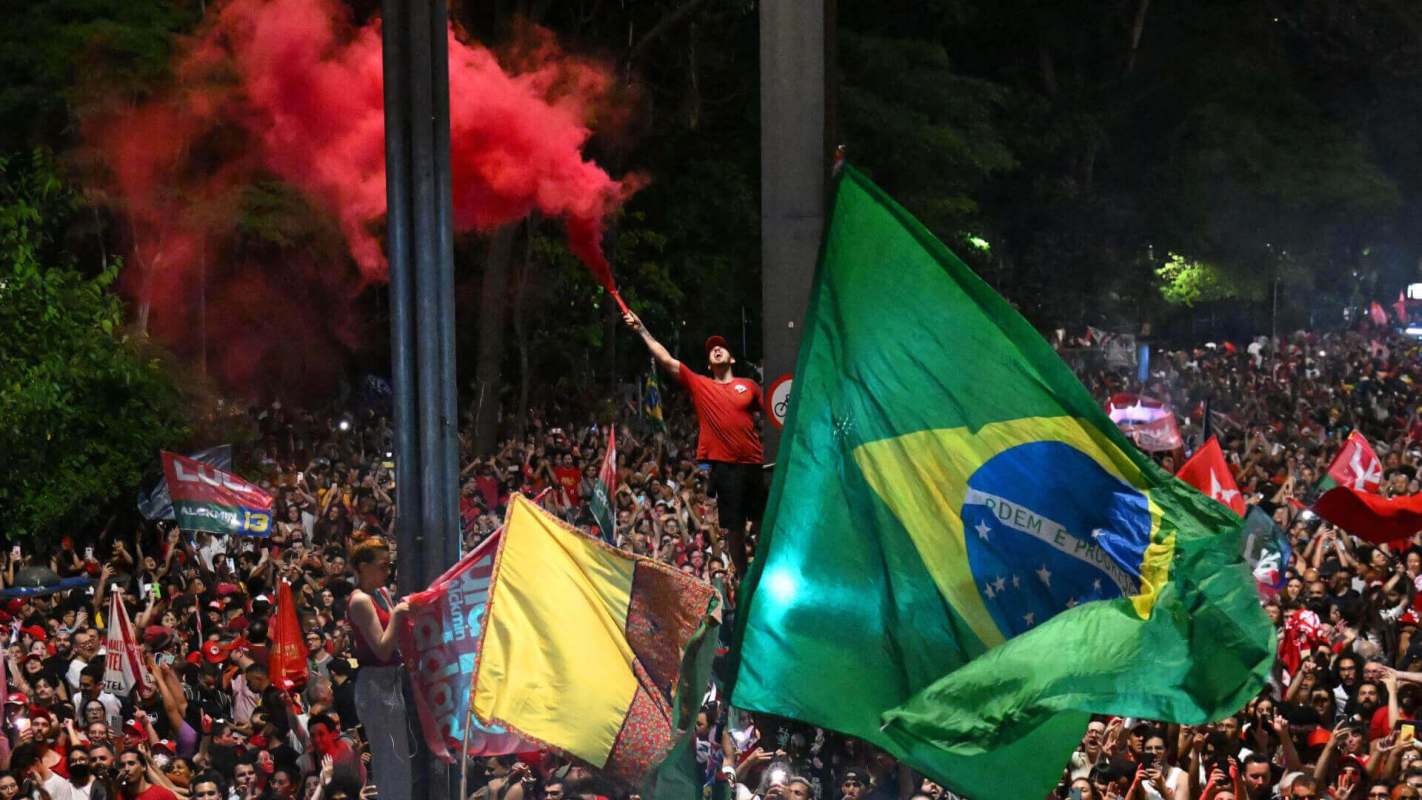On Sunday, Brazil elected a new president, Luiz Inácio Lula da Silva, who defeated incumbent leader Jair Bolsonaro. While many Brazilians are mixed over the results, it's clear that da Silva's victory will have massive implications for one of our planet's most valuable assets — the Amazon Rainforest.
"Let's fight for zero deforestation … Brazil is ready to resume its leading role in the fight against the climate crisis, protecting all our biomes, especially the Amazon rainforest," da Silva, who is known by his nickname Lula, said in his victory speech Monday.
Lula's speech covered the most pressing issue of our time: the climate crisis: "We will fight for a zero deforestation target in the Amazon. Brazil and the 🌎planet need an Amazon that's alive". His promise was clear: "We will fight all sorts of illegal activities in the Amazon." pic.twitter.com/F6RSZ6Q4Fb
— Elisângela Mendonça (@lilimendonca) October 31, 2022
The Amazon is Earth's largest land-based carbon sink, providing the vital service of sucking up planet-warming gas pollution. The tropical forest provides crucial benefits, but agriculture and beef production are driving it to a tipping point which could ultimately transform it from a tropical ecosystem into a dry, savanna-like environment.
An analysis by Carbon Brief estimates that under Lula, deforestation could plummet 89% by 2030, which would preserve an area of the Amazon roughly the size of Panama. Researchers modeled the results based on Lula's strong implementation of the Amazon Forest Code — a key piece of legislation that regulates deforestation and forest conservation on private lands.
During Bolsonaro's four years in office, deforestation surged by 72%. His administration defunded Brazil's environmental enforcement agencies while allowing rampant illegal deforestation. During Bolsonaro's presidency, major agribusiness firms were given license to desecrate indigenous lands and natural ecosystems.
But, as Reuters reported, Lula has promised a major overhaul of the country's climate policy. His proposals, which include rules against deforestation, investment in sustainable farming, and tax benefits for eco-friendly businesses, are being called Brazil's version of a "Green New Deal."
Can Lula save the Amazon?
Bruna Santos, the director of the Brazil Institute at the Wilson Center, told The Cool Down Lula will need international help to finance forest restoration measures.
"In the past, Brazil has received funding for research into forest conservation from international governments, philanthropists, and multilateral agencies," Santos said. "The Amazon region is shared by nine nations. Not only does it take national cooperation, but the private sector is also an important actor to fight the destruction of the Amazon."
With a narrow win over Bolsonaro, Lula has the challenge of balancing multiple stakeholder interests, which will require a lot of political capital. Still, Santos is optimistic.
"It's important to have a country-wide pact for the Amazon, but it takes a compromise of interests within government," Santos said. "I do believe that Lula is a good politician, he knows how to coordinate and convene people around an idea. That goes without saying as he brought together a wide coalition to get elected."
How does this affect America?
Beef production has a major effect on Brazil's emissions due to the carbon pollution created from burning forests, agricultural production, and methane produced by livestock. The United States is a huge market for Brazilian beef, importing almost 100 million pounds in the first month of 2022 alone.
It's unclear how quickly Lula will be able to implement his policies or what proposals he'll be able to turn into law. In the meantime, those looking to protect the Amazon can do so with their wallets.
The power of the purse is a tool people can use to shift demand patterns away from products that contribute to deforestation.
For example, the leather used in the supply chains of fashion brands such as Zara, H&M, Nike, and Adidas has been linked to deforestation in the Amazon. Those looking to support more sustainable products could consider thrifting or choosing eco-friendly companies over fast-fashion brands.
Follow The Cool Down on Instagram and subscribe to our newsletter.








